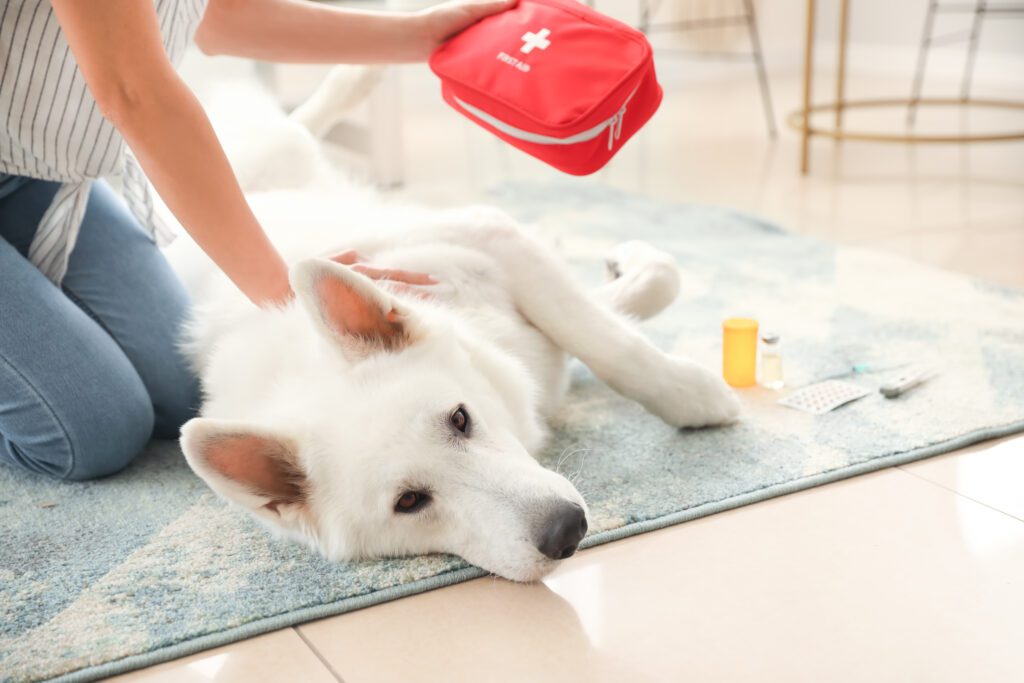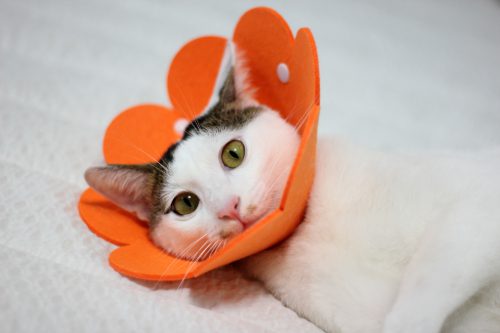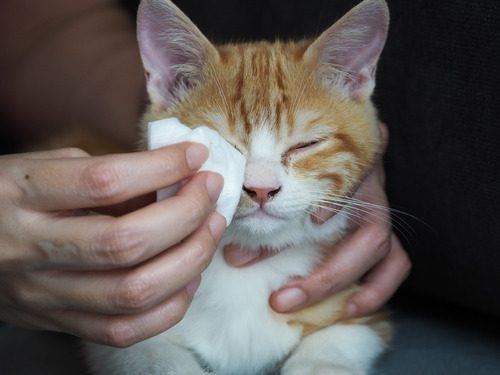10 Tips for New Puppy Care in Clifton Park, NY
There is nothing quite like the excitement of adopting a new puppy. The promise of many happy years of companionship await, and your family now feels complete.
However, there are quite a few things you need to do to make sure your puppy grows up healthy, happy, and well-behaved. At Cornerstone Veterinary Hospital of Clifton Park, it gives us great pleasure to teach families how to care for a new puppy and develop a lasting, loving bond with their four-legged family member.
Before You Adopt
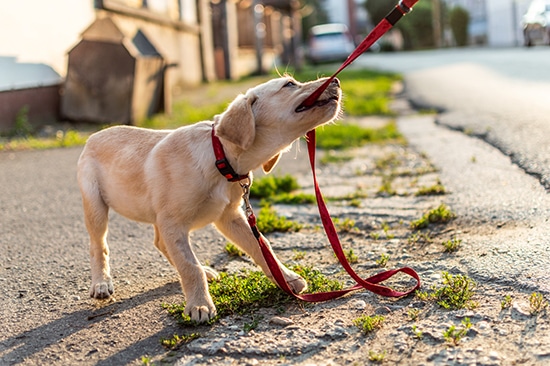
Every puppy deserves a loving home, but it’s important that you choose your new puppy wisely. Their breed (or breeds, if they’re mixed) can have a significant impact on how well they fit into your home and lifestyle.
Grooming needs, amount of exercise and feeding, temperament, and possible future health problems must all be considered. Take some time to do your research, and don’t hesitate to contact us if you have questions.
How to Introduce a Puppy Into Your Home in Clifton Park
There are several steps involved in helping your new puppy settle into their environment.
House and Potty Training
When you bring home your new puppy, give them plenty of time to explore their new environment under supervision. Let them sniff through their surroundings and get used to the new smells, sights, sounds, and surfaces of your home.
One of the biggest first steps in training your puppy will involve their bathroom needs. It’s important to establish a schedule so they’ll have plenty of opportunities to relieve themselves.
Accidents will happen on occasion, so you need to be prepared for those! Just remember to be gentle yet firm when training your puppy, and use positive reinforcement to encourage better habits.
When to take your puppy outside for potty breaks:
- When you first wake up
- Immediately after your puppy eats or drinks
- 20-30 minutes after eating and drinking
- When they wake up from a nap
- During and after exercise/playtime
- Right before bedtime
Puppy-Proof Your House in Clifton Park, NY
Puppies are good at getting into trouble. To keep them safe, be sure to:
- Move any breakable items and keep electrical cords out of reach
- Keep low windows closed
- Keep toxic substances like cleaning supplies, medications, antifreeze, and more locked away
- Block access to rooms that contain potentially dangerous substances or breakable items
- Secure all doors so they don’t slip out to go exploring
Crate Training
Crate training is an excellent way to establish routine and structure in your puppy’s life–it should not be used as a means of punishment. Instead, your puppy’s crate should be treated as a place where they can go to nap and feel safe (especially while you’re doing chores), and get used to brief periods of solitude.
Your pet’s crate should be large enough that when your puppy grows to their full size, they’ll still be able to stand and turn around easily. There should also be room for their food and water.
Get the Right Supplies for Your Puppy
You’ll need lots of different items to help you manage your puppy’s upkeep. This includes:
- Appropriate toys (no choking hazards!)
- Teething devices
- Stainless steel food and water bowls
- Collars, leashes and harnesses
- Bedding
- A healthy, age-appropriate diet
- Grooming brush and nail clippers
- Dental care supplies like toothpaste and a finger brush
Take Your Puppy to the Vet in Clifton Park as Soon as Possible
When they’re weaned from their mothers, puppies start to lose the antibodies they received from their mother’s milk. This leaves them vulnerable to illness, and in need of veterinary care to help them stay protected as they grow into adulthood. Schedule your new puppy’s first checkup as soon as possible.
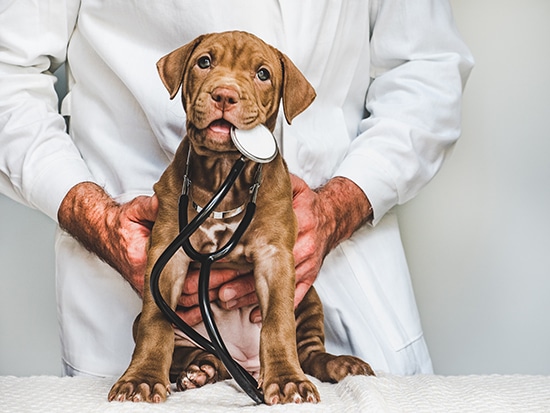
During their first visit, we’ll conduct a full physical exam, establish their vaccination schedule, and provide deworming treatment as needed.
We’ll take time to answer all your questions regarding your puppy’s diet, exercise, training, behavior, and much more. They will also need to be spayed or neutered before they reach maturity. Spaying and neutering are highly beneficial to the health of female dogs and cats, and prevent unwanted litters.
Choose the Best Diet for Your Puppy’s Needs
Puppies need a balanced, high-quality diet that’s rich in protein and other nutrients to help them grow. At Cornerstone Veterinary Hospital of Clifton Park, our veterinarians can evaluate your pet’s needs and offer appropriate recommendations.
We will also need to help you establish a feeding schedule for your puppy and determine how much they need to be fed.
Additionally, we can help you figure out when your puppy will need to switch over to adult food. Small and medium-sized breeds can gradually transition to adult food at roughly 9-12 months. Large breeds, on the other hand, should be kept on puppy food until they are at least a year old.
How Often Should I Feed My Puppy?
A typical puppy feeding schedule looks like this:
- 6-16 weeks old: 3 to 4 meals per day
- 3-6 months old: 2-3 meals per day
- 6-12 months old: 2 meals per day
Things Your Puppy Should Never Eat
As pet parents, we’re responsible for preventing bad habits and instilling good ones in our animal companions. Food can be a great way to motivate and reward your puppy, but it can also create unhealthy habits that are hard to break.
Never feed your puppy:
- Outside of their usual feeding schedule
- Bigger portions than what their veterinarian recommends
- Table scraps
- Chocolate, raisins, grapes, onions, garlic, and sugar-free treats that are likely to contain xylitol
- Bones
- A quantity of treats that exceeds the suggested serving size
- Cow’s milk (can cause diarrhea)
New Puppy Training: Teaching Manners and Instilling Confidence
Your puppy’s health and happiness also depend on how well they interact with their surroundings in the Clifton Park area. Puppies that are socialized early and taught basic lessons in obedience will be able to handle company–and other dogs–with greater ease. Furthermore, they are likely to be less fearful, less aggressive, and less prone to stress.
Barring any health problems, puppies can begin attending training classes as early as 7-8 weeks, after they’ve started getting their vaccinations.
They should receive leash training and learn basic obedience and commands, and should continue these lessons at home until they become second nature. Remember to always keep these lessons positive, and get your whole family involved if possible. Training should be rewarding and enjoyable for everyone.
Recent Posts
Pet First Aid: Essential Supplies for Your Pet Emergency Kit
Pet First Aid: Essential Supplies for Your Pet Emergency Kit Every pet parent wants to keep their…
Benefits of Spaying or Neutering a Cat
Benefits of Spaying or Neutering a Cat Deciding to spay or neuter your cat is a responsible…
Why Does My Cat Get Eye Boogers Everyday?
Why Does My Cat Get Eye Boogers Everyday? Cats are known for their meticulous grooming habits, but…
About Us
Originally opened as Animal Care Hospital by Dr. Mark Johnston in 1989, the hospital became Cornerstone Veterinary Hospital in 2015 when it was purchased by Drs. Alan and Lisa Knott. The name 'Cornerstone' holds a special place in their hearts, representing not only their Christian faith but also their commitment to being the cornerstone of the community in which they practice. As a family-owned and operated practice, every pet is treated as part of the family, ensuring they receive the highest standard of care. The team at Cornerstone Veterinary Hospital is dedicated to building lasting relationships with clients and their beloved pets, striving to be the cornerstone of the community in which they practice.
